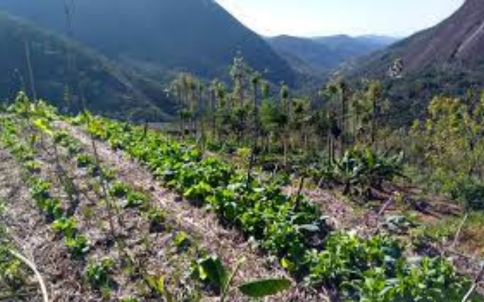Dr M.Suresh Babu, President, Praja Science Vedika
Agroecology is indeed a comprehensive approach to food production, a way of life, a scientific discipline, and a social movement with various interconnected aspects:
A Way of Producing Food: Agroecology focuses on sustainable and regenerative farming practices that mimic natural ecosystems. Techniques like intercropping, crop rotation, and the use of compost and local seeds promote biodiversity, reduce the need for external inputs, and minimize harm to the environment. By avoiding agrochemicals and genetically modified organisms (GMOs), agroecology prioritizes the health of ecosystems and consumers.
Agroecology places people and the environment ahead of corporate profits. It encompasses a holistic vision that extends beyond agriculture and seeks to transform the entire food system. This transformation is rooted in social, economic, political, and ecological principles, and it integrates traditional knowledge and practices from various communities, including peasants, Indigenous Peoples, and small-scale food producers. It emphasizes principles of equity, solidarity, and ethical production and consumption.
Also read: Decline in production and consumption of millets
Agroecology is a scientific discipline
Agroecology is not just a set of practices; it’s a scientific discipline that studies the interactions between ecological and social systems within agriculture. It embraces a transdisciplinary approach, drawing on diverse knowledge systems and ways of knowing. This scientific foundation helps us understand how food systems must adapt and restore the biocultural systems they rely on.
Agroecology is also a social movement that actively challenges existing power structures in society. It empowers small-scale food producers, including peasants, Indigenous Peoples, and artisans, to regain control over seeds, land, knowledge, and other resources. The movement seeks to achieve food sovereignty by advocating for collective rights, access to common resources, and dismantling corporate control of the food system. Gender justice and dismantling patriarchy are integral components of this movement, as they are seen as pathways to women’s autonomy and rights.
Indeed, agroecological practices are grounded in a set of principles that are applied in various contexts to promote sustainable and regenerative food production. These principles emphasize the importance of working in harmony with nature and local communities. Promoting diversity in crop varieties, livestock breeds, and other elements of the agricultural system. This diversity helps increase resilience to pests, diseases, and changing environmental conditions.
Also read: Why Nehru is relevant to Present Times?
Local Seeds and Livestock Breeds: Using locally adapted and indigenous seeds and livestock breeds that are well-suited to the local environment and cultural preferences. Integrating different components of the agricultural system, such as crops, trees, livestock, and fish, in a way that mimics natural ecosystems. This integration enhances ecological interactions and resource use efficiency. Applying organic matter in the form of manure and compost to improve soil fertility and structure while reducing the reliance on synthetic fertilizers. Reducing the use of non-renewable external resources and inputs, including synthetic nutrients and agrochemicals. This helps reduce environmental impacts and dependence on fossil fuels.
Sustainable Resource Management
Engaging in sustainable resource management practices, such as conservation of grazing territories, fishing grounds, coral reefs, and other natural habitats. Involving local communities in the management and conservation of natural resources, whether it’s land, forests, or fisheries. This approach fosters a sense of stewardship and ensures long-term sustainability.
Capturing and utilizing rainwater for irrigation and other agricultural purposes, reducing reliance on water from unsustainable sources. Using solar energy to dry and store food, reducing post-harvest losses and the need for energy-intensive preservation methods. Engaging communities in monitoring the health and dynamics of local ecosystems to inform sustainable management practices. Preserving local cultures and traditional knowledge systems that are often closely tied to sustainable agricultural practices.
It’s important to note that these principles are adaptable and can be tailored to specific local contexts and cultural practices. Agroecology recognizes the importance of traditional knowledge and respects the autonomy and self-determination of local communities.
Agroecology has gained recognition in scientific and UN reports for its potential to address various global challenges, including food security, climate change mitigation, and biodiversity conservation. Its holistic approach aligns with many sustainable development goals and offers a pathway toward more resilient and equitable food systems.
Overall, agroecology offers a holistic approach to addressing the multiple challenges facing our food systems, from environmental degradation to social injustice and economic inequality. It emphasizes sustainability, resilience, and a deep connection to the land and its people. As the movement continues to grow, it has the potential to transform our food systems for the better, promoting ecological, social, and economic justice for all.
Also read: Sensitive Personal data on toss





[…] Also read: Agroecology is a holistic approach to address multiple challenges […]